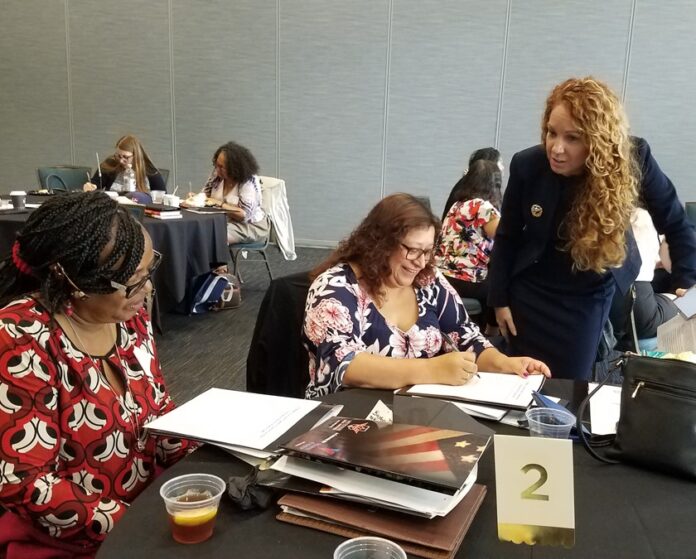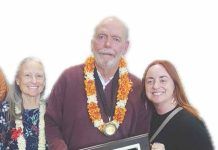
Foundation for Women Warriors is the only organization in California that solely focuses on serving women veterans and their families with programs that address the growing needs of the increasing number of military women transitioning into civilian life.
CEO Jodie Grenier said the foundation is a 102-year-old nonprofit, beginning in 1920 as a housing association for widows, war nurses, and mothers of fallen service members.
“Over the years, as women’s roles have changed, we started to focus on women veteran’s needs, so today we prevent homelessness amongst the women veteran’s population and enhance their personal health and economic wellbeing,” she said.
Grenier said they do this in a number of ways.
“We have a program Women Veteran Transitioning Emergency Services, and under that program we provide financial management education, emergency financial stipends, childcare assistance, which is a huge, overlooked component of getting out of the military. During COVID, we opened a warehouse to provide things like wipes, diapers, formula. We also provide professional development.”
Grenier said at the end of the day, amongst all these programs, the foundation also connects women veterans to one another.
“Most people do not realize, though the number of women serving in the military is increasing, we still serve with very few women, so when you transition out, you do not necessarily organically fall into a natural network of other women veterans,” she said. “Through our various programs and activities, we are also connecting women with one another, which they are able to build a support system.”
Grenier said that women experience all the transition issues as their male counterparts, like loss of identity, feeling like you speak a different language than civilians, not understanding how to translate skills.
“I would say there is some added complexity and unique challenges that women face,” she said. “Society does not automatically assume you served. They also ask questions that their male counterparts do not normally get. I have been asked what I did with my hair, I am so petite, how did I carry my pack or any of my gear. I do not think those are questions men are met with. Sometimes there is a sense of disbelief that a woman can serve. There have also been questions posed to women, did you actually fight in combat, did you serve in the same capacity, and those things can be extremely frustrating.”
Grenier said many times women are mistaken for spouses, and this is not in general, but at Veteran Administration appointments.
“Also, amongst the women that we serve, 70% are single parents, so they have transitioned out here in Southern California, but they might be from the Midwest or somewhere else. That means they do not have family support to help with their children. The transitional issues are very much similar. There is also a sense of pride that both men and women share about their service, which makes them reluctant to ask for help,” she said, adding that though many transitional challenges are shared, many are unique to women veterans.
Grenier said the non-profit partners with the various VAs. FFWW is online and various social media platforms, so that women veterans in need can contact them directly.
“One of the benefits of social media is that women have been able to connect with each other in various Facebook and Meta groups,” she said. “Our information is there. We work with a number of partners. We have Google Ad Grants. So, they come to us in a number of ways. But many times, it is by word of mouth.”
Grenier said the needs are increasing. In 2020, it served around 1,018 women and children, and last year it served 1,444.
“With things like inflation, housing costs, the rising childcare costs, we are seeing more and more women reach out,” she said.
Grenier served in the U.S. Marine Corps as an intelligence analyst for five years. She said she wanted to work counterintelligence, but it was closed to women.
“I felt I had reached the peak in my career. I could have stayed and gained rank, but in terms of what I really wanted to do, I wanted to be closer to intel operations. I wanted to be more of a collector rather than an analyst.”













